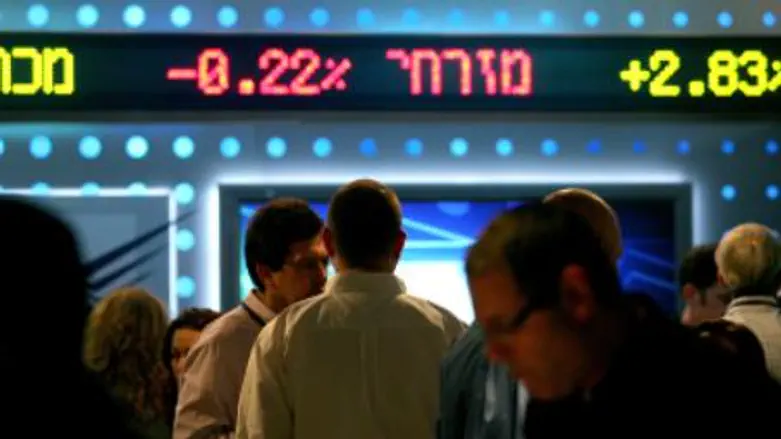
Harvard University has sold millions of dollars' worth of shares in Israeli companies. In response to claims that the University has decided to divest from Israel due to the Jewish State's recent handling of the Gaza-bound flotilla, the university has publicly announced that it has not divested from Israel.
University spokesperson John Longbrake explained that the selling of shares was a purely economic decision, and had to do with the fact that Israel's economy is actually stronger than before. "The university has not divested from Israel," said Longbrake, who went on to say that the shares were sold since Israel has recently graduated from the status of an emerging economy to that of a developed market. The university has a policy of investing a percentage of its funds in developing countries.
Longbrake delivered the message to the Foreign Policy blog, The Cable. He said that, "Israel was moved from the MSCI, our benchmark in emerging markets, to the EAFE index in May due to its successful growth. Our emerging markets holdings were rebalanced accordingly."
Longbrake also pointed out that Harvard still holds shares in Israeli companies, without naming which.
According to a report in Globes, Harvard Management Company's 13-F form said that it sold 483,590 shares in Teva Pharmaceutical Industries Ltd. (Nasdaq: TEVA; TASE: TEVA) for $30.5 million; 52,360 shares in NICE Systems Ltd. (Nasdaq: NICE; TASE: NICE) for $1.67 million; 102,940 shares in Check Point Software Technologies Ltd. (Nasdaq: CHKP) for $3.6 million; 32,400 shares in Cellcom Israel Ltd. (NYSE:CEL; TASE:CEL) for $1.1 million, and 80,000 Partner Communications Ltd. (Nasdaq: PTNR; TASE:PTNR) shares for $1.8 million.
While anti-Israel lobby groups claim that Harvard's move was a political statement, economic analysts, even in Israel, are inclined to believe Harvard's version of the story.
"This is pure economics and I don’t think it was because of the Arab boycott. Harvard did not liquidate its investments in Israeli shares," Gil Feiler, the director of the Middle East Business and Economic Research Institute at Interdisciplinary Center Herzliya said to The Media Line.
Yaacov Heen, Cellcom CFO, told The Media Line, "There are some funds which invest only in emerging markets. So Harvard had to sell our stock because Israel is no longer classified as an emerging market and they no longer have the ability to hold this stock within the emerging markets fund. It’s more technical than strategic or an issue against Israel...we believe it’s because Israel was reclassified as a MSCI developed country in May 2010."
Harvard has divested from countries in the past due to political considerations. In 2005, Harvard sold shares of PetroChina, an oil company, due to China's connection with Sudan, which was involved with the Darfur genocide. At the time, Harvard publicly announced it was divesting for that reason.
At the time of writing, it was not known where Harvard was going to invest the funds fron selling Israeli holdings.